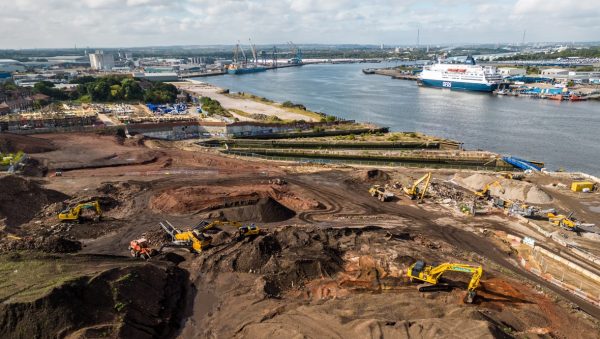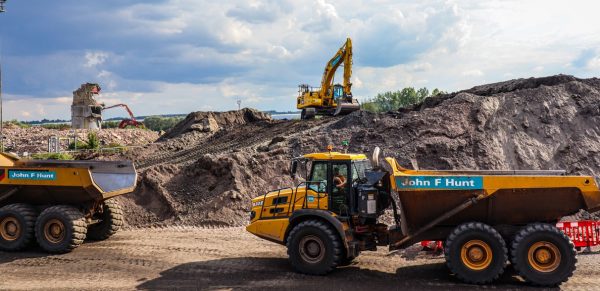Celebrating its 40th anniversary, John F Hunt serves the UK construction industry through 18 dedicated professional companies and divisions nationwide. It provides technical engineering services to safely deliver complex construction and regeneration projects, while its specialist hire companies enable a fully supported, in-house approach for its clients.
John F Hunt Demolition was founded in 1982 by its Chairman, John Hall. Increasingly, the demolition projects the company was involved in had complex ground remediation requirements. To meet this need, John F Hunt Remediation was formed in 2012. The new business quickly won significant projects in the South-East including the large Sugar House Island project for Vastint. This large regeneration project required a wide range of capabilities – demolition, remediation, and civils.
The remediation business continued to grow steadily and in 2019 it incorporated the Industrial Dismantling and Water Technology operation and was subsequently renamed John F Hunt Regeneration to better reflect the nature of the projects it was active on.
The business structure allows the company to provide a one-stop-shop for clients that require complex brownfield sites to be entirely de-risked and made ready for development. It now has projects across the UK and this year has seen the business being particularly active in the Midlands and North.
As a turn-key operation, John F Hunt has all the facets required to enable a brownfield site, no matter how large. This includes remediation, ground engineering, demolition, dismantling, water treatment plant design and operation, and asbestos management.
The business currently employs 120 staff across six regional offices, allowing it to operate nationally. It is currently working on three major brownfield projects concurrently, all of which are extremely complex.

At Rugeley Power Station, John F Hunt is working closely with the Environment Agency to reuse a large volume of PFA (pulverised fuel ash), a relic of the site’s activity as one of the UK’s most powerful coal power stations. It has been able to reuse all of the PFA present onsite.
Phoenix 10 in Walsall, meanwhile, is a former copper refinery with an industrial past dating back three centuries. The copper works are associated with impacted soils and waters that must be remediated. However, this is complicated by the extensive coal workings that must be treated to provide a suitable development platform.
John F Hunt is utilising impacted groundwater to create the grout material used to treat the mine workings, which provides a neat and sustainable method of remediating two separate issues.
The third major site that John F Hunt is currently working on is in South Shields. The Holborn site was a major dockyard on the south bank of the River Tyne. Derelict for many years, the site has a number of challenges including the demolition of large retaining walls, ground remediation and improvement, dock restoration/raising, and the creation of a new river wall to enable the site to be prepared for residential development.

John F Hunt has installed a ‘bubble curtain’ to protect migrating Atlantic Salmon from the acoustic impacts associated with piling operations, unique to any development on the River Tyne.
The remediation business has grown and developed over the past 10 years tremendously well. Sensible reinvestment in the business means it can genuinely self-deliver and is well-placed to adapt to future changes in the market, whatever they might be. Knowing what those changes will be and shaping the business to benefit from them is the key.
John F Hunt’s pipeline is very healthy. Naturally, it is focused on the successful delivery of current projects. With this in mind, the company is continuing to build a robust and agile business that can deliver a service that is relevant to its clients is the long-term ambition. It is therefore carefully watching what the market needs so that it can respond to that need.